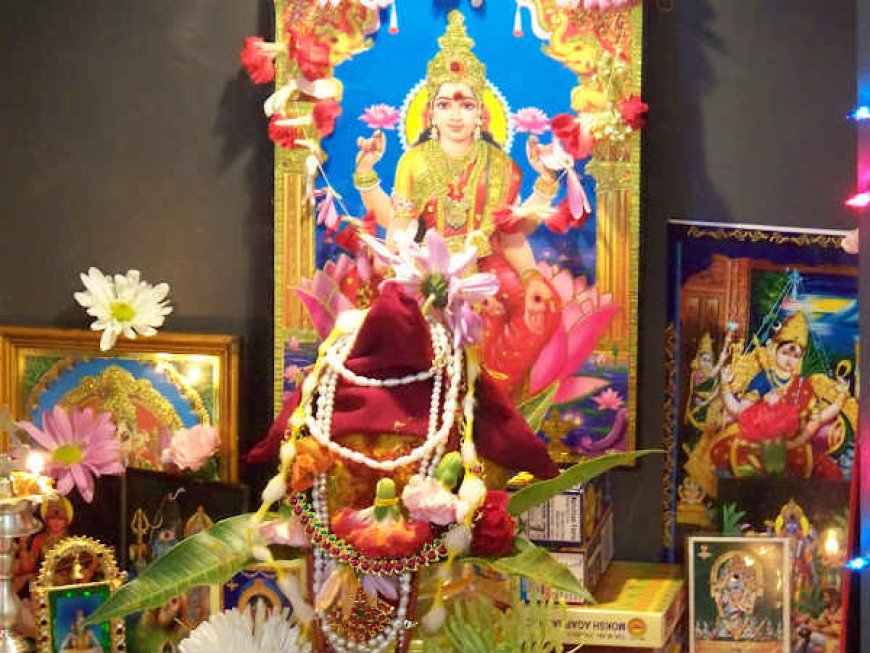Rituals & pooja steps for prosperity and well-being
Discover the significance of Varalakshmi Vratam, its rituals, and Hindu beliefs that honor Goddess Lakshmi for prosperity and family well-being.

Varalakshmi Vratam: A Sacred Celebration of Prosperity and Devotion
Introduction
Varalakshmi Vratam is a revered Hindu festival dedicated to Goddess Lakshmi, the bestower of wealth, prosperity, and well-being. Observed mainly in South India, especially in states like Andhra Pradesh, Telangana, Tamil Nadu, and Karnataka, this vratam (fast and prayer ritual) falls on the Friday before the full moon in the month of Shravana (July–August). The name Varalakshmi means “the goddess who grants boons,” and devotees believe that sincere observance of this vratam can bring blessings for the entire family.
Connection to Hinduism and Its Beliefs
In Hinduism, Lakshmi is one of the principal goddesses and the divine consort of Lord Vishnu. She represents not only material prosperity but also spiritual well-being, harmony, and abundance. Hinduism teaches that wealth is not just about money—it includes knowledge, virtues, family harmony, and health. Varalakshmi Vratam beautifully embodies this belief, reminding devotees to seek balanced prosperity through devotion, righteousness, and gratitude.
Rituals and Pooja Significance
The Varalakshmi Pooja is performed with great devotion and elaborate preparations. Women wake up early, clean their homes, and decorate the pooja area with flowers and rangoli. A decorated kalasha (sacred pot) symbolizing the goddess is placed, filled with rice, turmeric, betel leaves, and coins. The idol or image of Goddess Varalakshmi is adorned with silk sarees, gold ornaments, and fragrant flowers.
During the pooja, devotees chant Lakshmi Ashtothram (108 names of Goddess Lakshmi) and offer special naivedyam (food offerings). Fasting is observed until the rituals are complete, and blessings are sought for the family’s health, wealth, and happiness.
Importance and Spiritual Meaning
Varalakshmi Vratam is more than a ritual—it’s a prayer for collective well-being.
-
Family Prosperity: Believed to bring wealth, success, and good fortune.
-
Health & Longevity: Prayers are offered for the good health of loved ones.
-
Spiritual Growth: Reinforces faith, discipline, and gratitude.
-
Cultural Unity: Brings families and communities together in devotion.
Symbolism in Hinduism
The celebration reflects core Hinduism beliefs:
-
Karma & Devotion: Sincere prayers and righteous living attract divine blessings.
-
Shakti Worship: Honoring feminine divine energy, which sustains life.
-
Balance of Dharma & Artha: Encouraging a life where moral duty and prosperity go hand in hand.
Conclusion
Varalakshmi Vratam stands as a radiant example of devotion in Hinduism, blending faith with cultural tradition. It teaches that prosperity is holistic—rooted in love, discipline, and gratitude toward the divine. By observing this sacred day with sincerity, devotees believe they invite the grace of Goddess Lakshmi into their homes and hearts, ensuring blessings for generations to come.

 Ellofacts
Ellofacts 





